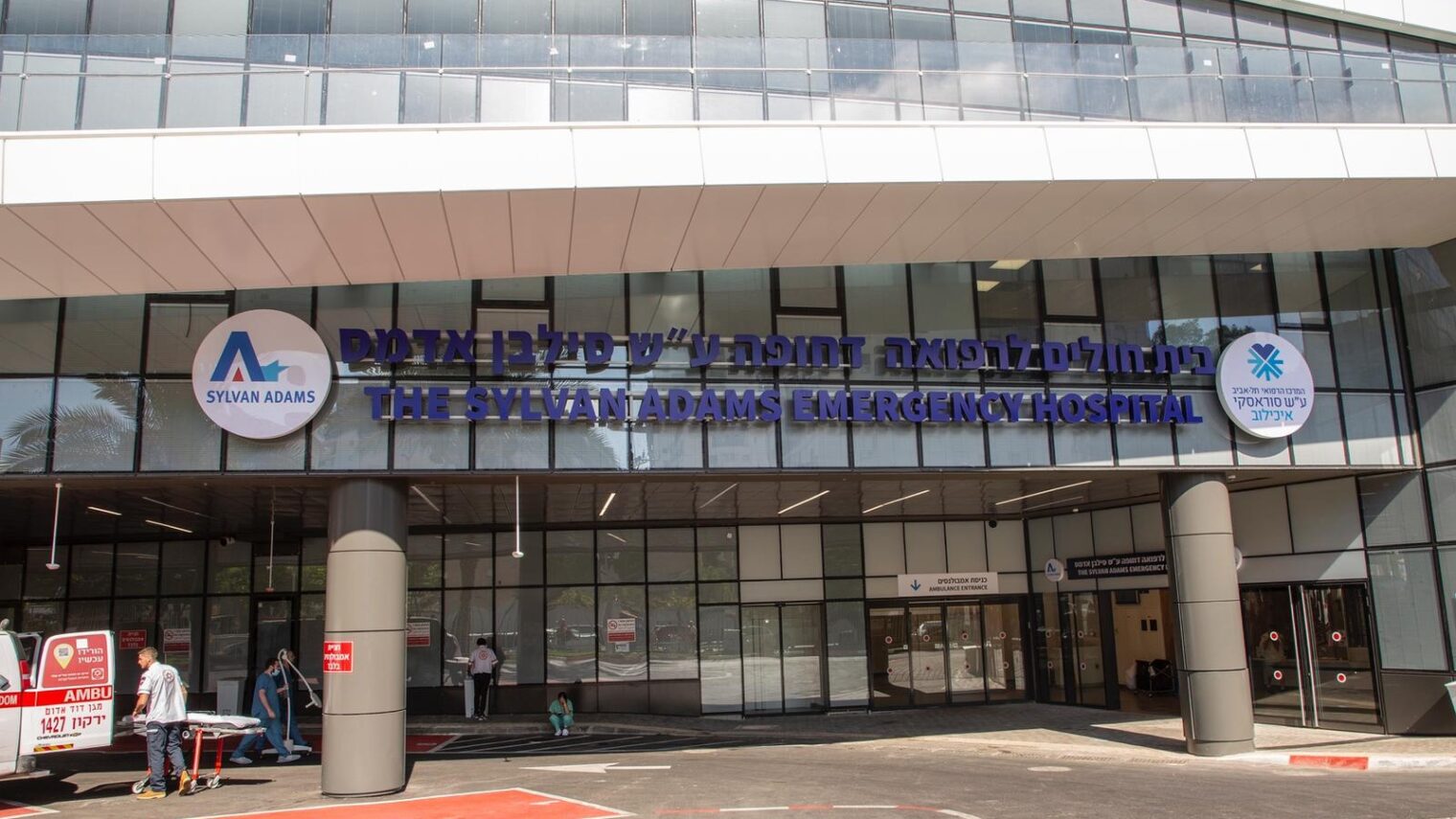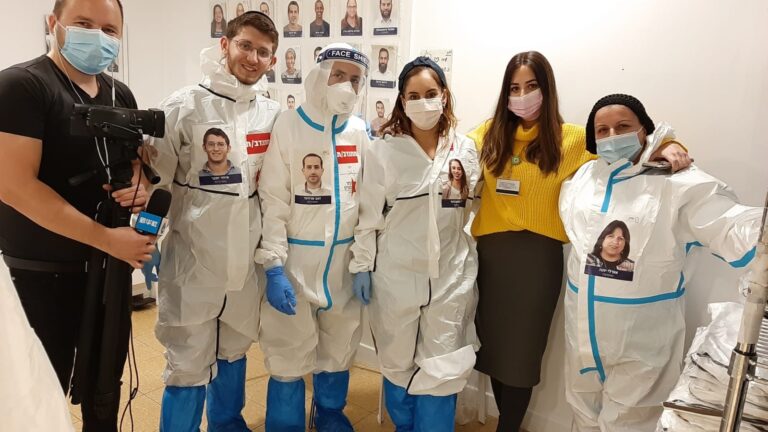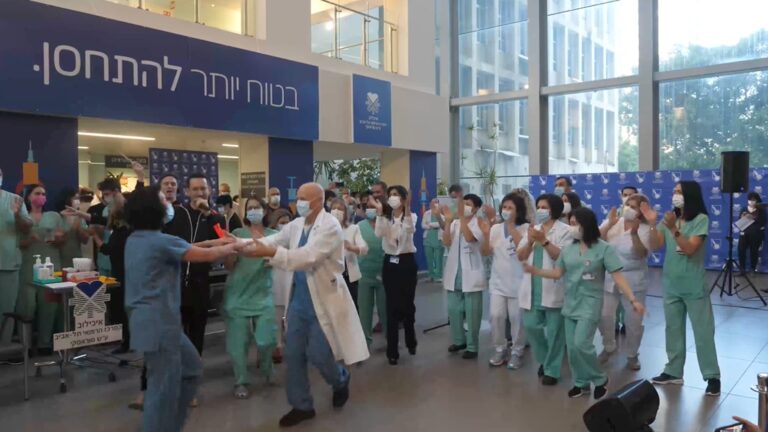Tel Aviv Sourasky Medical Center just inaugurated what it claims to be the world’s biggest emergency department: a three-story, 8,000-square-meter (86,000-square-foot) building.
The Sylvan Adams Emergency Hospital is named in honor of the Canadian-Israeli philanthropist who donated approximately $28 million toward its construction.
Dignitaries including President Isaac Herzog, Prime Minister Yair Lapid, Health Minister Nitzan Horowitz and Tel Aviv Mayor Huldai joined Adams in the July 28 ribbon-cutting ceremony.
The new facility is equipped with the latest technology for streamlining ER visits and reducing wait times. Each year, more than 250,000 Israelis visit the emergency room at the medical center, locally known as Ichilov Hospital.
“I am happy to provide the residents of the State of Israel with the largest and most advanced emergency room of its kind,” Adams said.
“The innovative technology, the worldview that places the patient at the center, and the high level of infrastructure creates an advanced level of service and treatment for the benefit of the State of Israel,” he said.
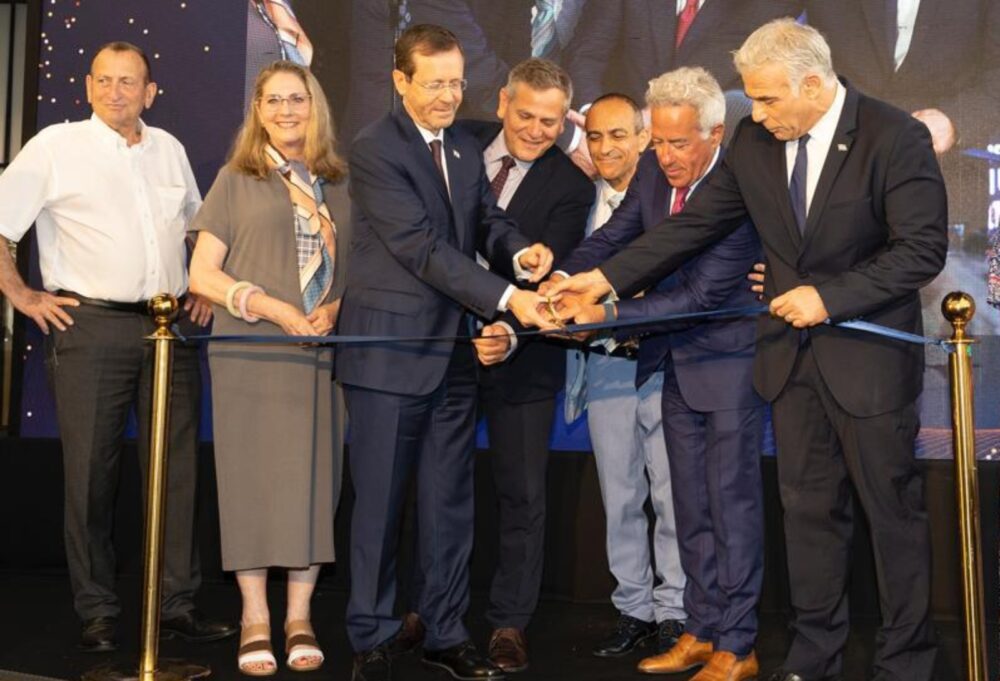
Robots and self-check-in
Roving robots greet walk-in patients and help them navigate the emergency hospital as well as departments outside the facility.
A facial recognition station and digital self-registration setup next to the traditional reception desk enables these non-critical patients to self-triage.
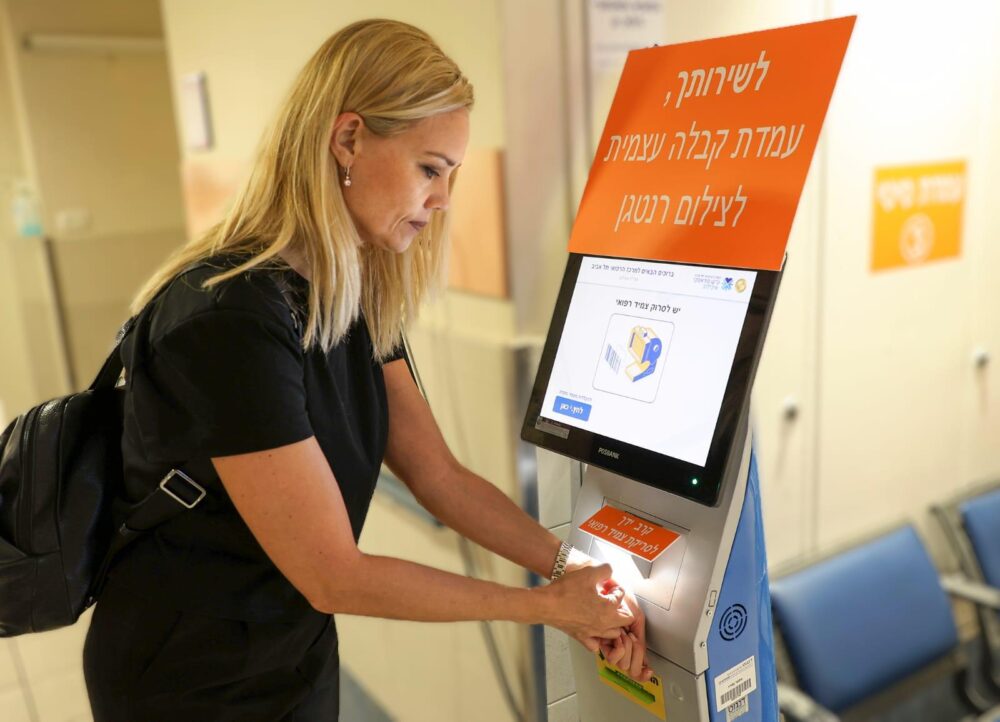
Patients scan in their identity documents or medical referral and demographic details, then self-check temperature, pulse, blood oxygen and blood pressure before being assigned a medical professional for treatment.
At the end of the process, a case is opened in the hospital’s computerized system and the patient is instructed to move on to the next stage of care provision.
If any dangerously abnormal or critical results are sensed, the system will immediately alert the medical staff.
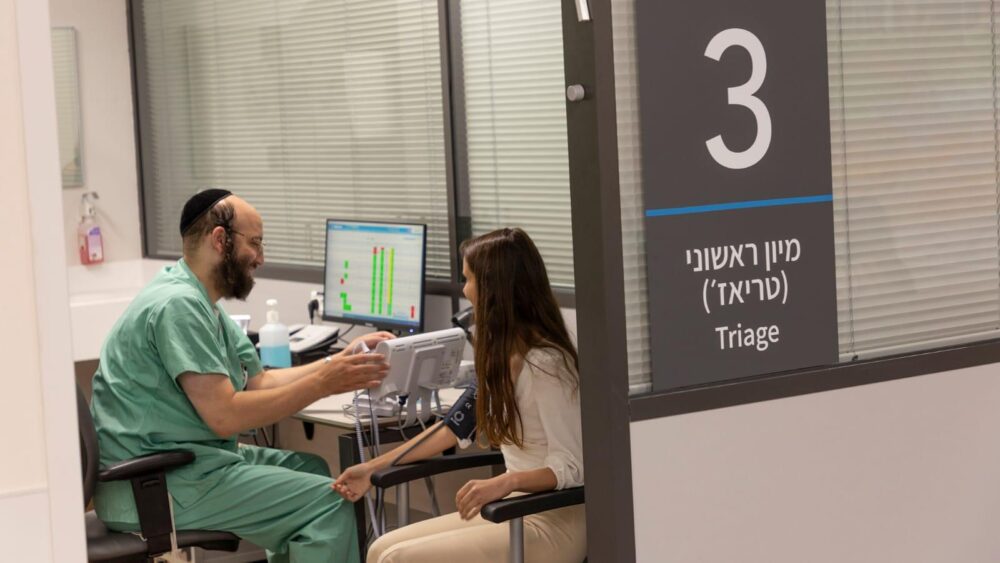
Patients can download an app to stay informed during their visit: The app will provide real-time reports about their status, carry out checks and deliver responses, provide advice, inform patients of the risk of hospitalization, and send a satisfaction survey.
First psychiatric ER in Tel Aviv
Designed by Sharon Architects in collaboration with Rani Ziss Architects, the emergency hospital has dedicated areas for care based on the patient’s condition, such as orthopedics, eye, and head and neck injuries.
The ground-floor inpatient hall includes around 100 monitored beds – the largest in any ER in Israel. If needed, during a mass casualty event, this number can be doubled.
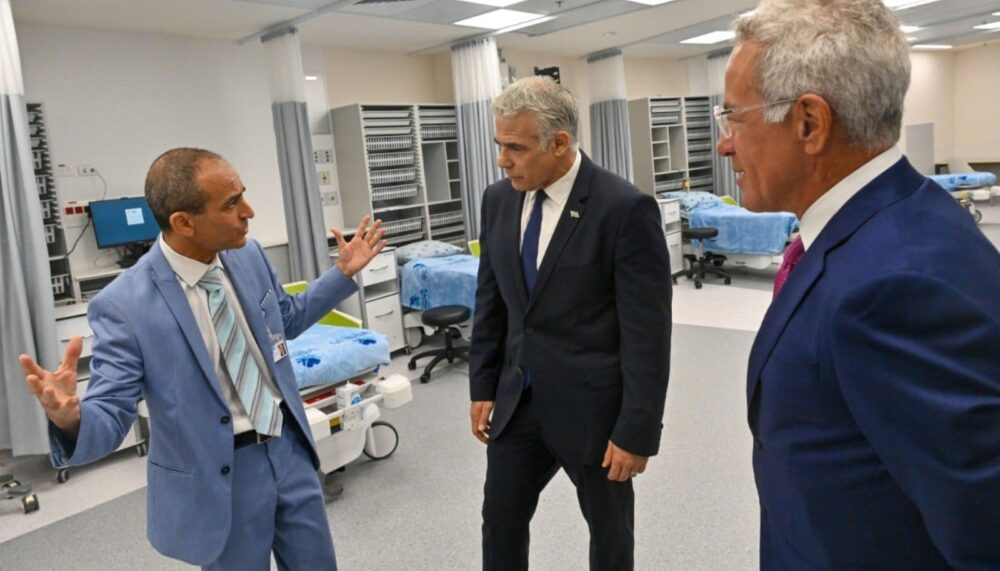
Also on the ground floor is a shock and trauma room with advanced equipment and an imaging area that includes two CT machines.
The building houses a 32-bed short-term hospitalization department, a center for the acute care of sexual assault victims, and Tel Aviv’s first psychiatric emergency room.
The ambulatory wing encompasses 30 medical testing rooms and a large treatment hall. For the first time in Israel, this care is reinforced by professional advisers in the fields of cardiology, neurology, dermatology and sexual health.
On the roof of the building is an amphitheater with lawns, benches and coffee stations where patients can wait for their medical treatment. This space also can hold events for up to 500 people.
Dr. Ronni Gamzu, CEO of Tel Aviv Sourasky Medical Center, said: “Our emergency room treats complicated cases on a large scale and therefore the challenge of providing outstanding service is significant. We are determined to change this and to prove that it is possible to demand and to receive quick, outstanding treatment even during busy periods.”




